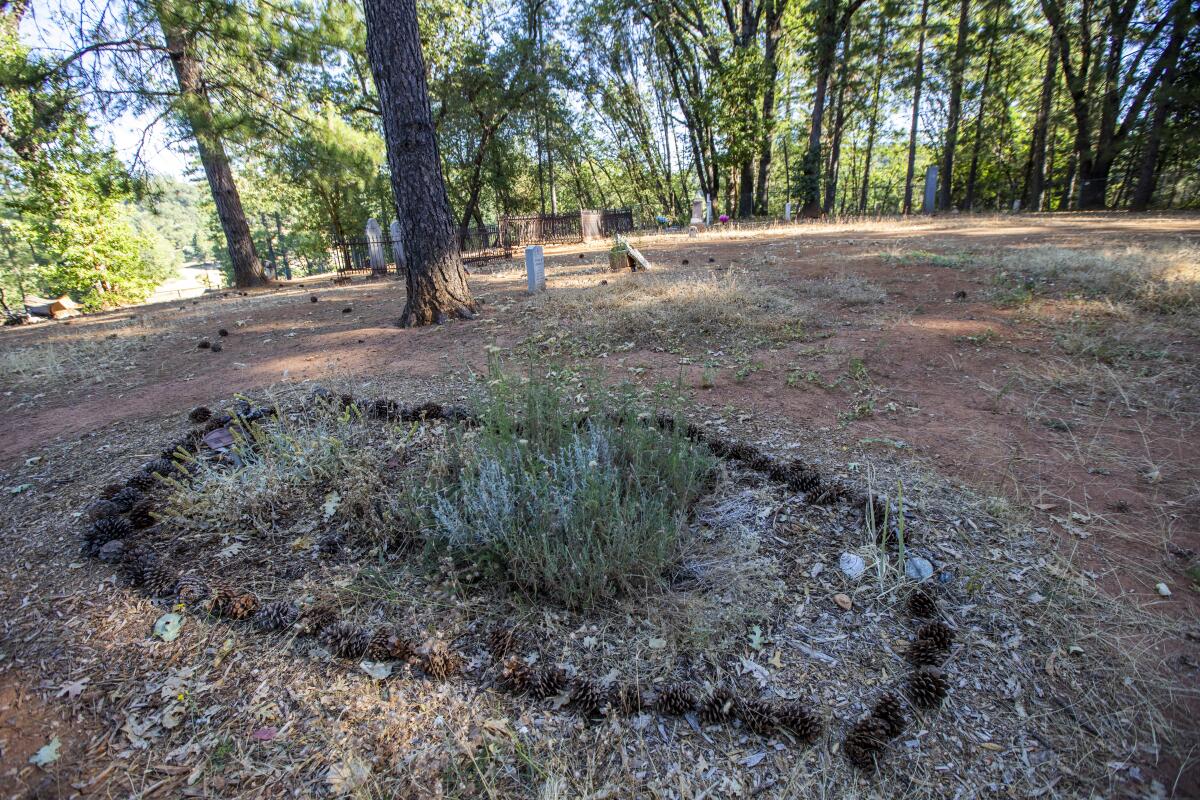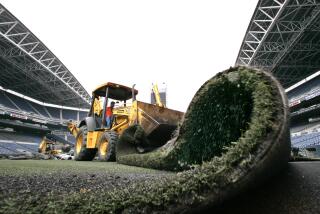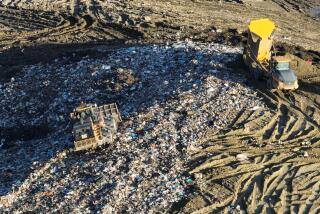Commentary: I tried to bury my mom in an environmentally responsible way in L.A. It was impossible

To get a sense of how progressive ideals don’t always reflect actual practice, try burying a dead relative in Southern California. You’ll find that even in this land where people talk about sustainability, saying farewell in an environmentally responsible manner is, for most people, nearly impossible.
I came to grips with that reality in August, when my mother died from an unexpected illness. Making the final arrangements was my job, and I valued the experience as much as one can while gripped by grief.
My mother, a nurse and devout Lutheran, spent her life caring for the world around her and the people whom Jesus called “the least of these brothers and sisters.” I felt strongly that her remains should be handled in a way that reflected her values and, to some extent, mine.
As funeral director and poet Thomas Lynch wrote, “By getting the dead where they need to go, the living get where they need to be.”
And where are the living? On a planet in serious peril, where resource- and land-intensive burial practices reflect the overconsumption that put us in this mess. So, in the days just before my mom’s death, and with the clock ticking fast, I explored “green burial” options in Southern California that minimize environmental impacts.
That involved ditching the local (and very expensive) mortuary giant Forest Lawn — where seemingly everyone in Glendale, my mom’s hometown, goes to spend eternity — and calling smaller funeral homes that advertise eco-friendly options.
I settled on a small business in Hollywood that partners with a natural burial cemetery — where the land is minimally disturbed and traditional embalming isn’t allowed — and even offers an intriguing “human composting” option. Crucially, prices for the most common services are listed prominently on the funeral home’s website (note to other mortuaries: Please do this).
But the eco-friendly options had serious drawbacks. The natural burial cemetery is near Joshua Tree (gorgeous, but 120 miles away), and human composting — a process that accelerates decomposition and, within a month, turns a body into nutrient-dense soil — isn’t yet legal in California and would have required shipping my dead mother to Washington state.
Burial options that require two-hour flights or three-hour car drives don’t strike me as green. Even in this era of heightened environmental consciousness, the most accessible disposal options are not the sustainable ones. Our final choice: local cremation.
Still, the future for handling the dead in an environmentally sound way isn’t totally dim. Last year, California passed a law to allow human composting starting in 2027. And, although there are only two fully natural burial grounds certified by the Green Burial Council in all of California (none of them near Los Angeles), more “traditional” cemeteries are offering some environmentally friendly options.
Sarah Chavez, executive director of the L.A.-based advocacy group the Order of the Good Death, told me these cemeteries and California lawmakers are responding to an increasing demand for burials that not only conserve resources, but are also more meaningful to the people seeking them.
She said the $20-billion U.S. funeral industry has commodified death in a way that has made people scared of their dead loved ones, convinced that only trained, very expensive professionals must take over the moment a relative dies.
I told Chavez my family resisted this routine, even if we didn’t get a green burial. The funeral home accommodated our request to sit with my mom for several hours before it sent workers to pick her up. In that time, the few of us there had a mini-funeral.
We alternated between tears, laughter and prayers, all while my mom was there with us. Her body was not hazardous waste to be swiftly disposed of.
Chavez said our experience reflects a grassroots change in death services. Her group supports families taking a more active role in burials. She said many people entering the funeral industry now are women who recognize the need for change, which I noticed in making my arrangements as well.
From this desire for more control, we’ll get more green burial options in the future. Just not in time for my mom.
More to Read
A cure for the common opinion
Get thought-provoking perspectives with our weekly newsletter.
You may occasionally receive promotional content from the Los Angeles Times.











